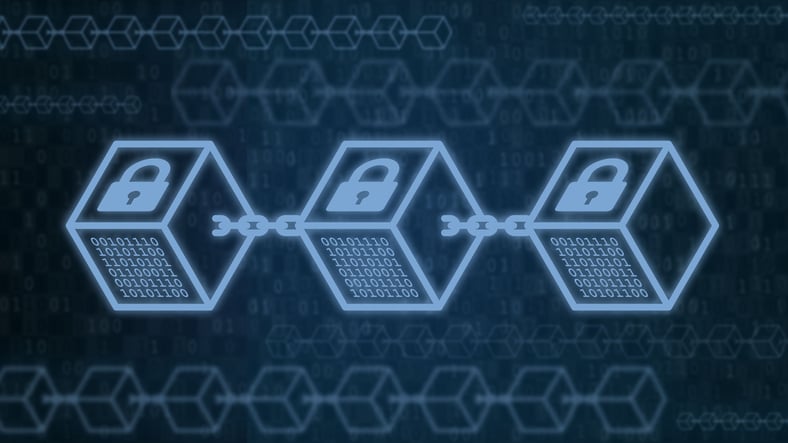
Editorial Note: This article was brought to you courtesy of Rose Morrison, managing editor of Renovated.com.
Digital transformation can streamline regulatory compliance in construction. As the industry faces a more complex regulatory landscape, advanced, turnkey digital tools can come to the rescue. How can digital compliance solutions save the day? Understand what they are and the challenges they address to appreciate their merits.
Regulatory Compliance Challenges in Construction
Keeping regulators happy is one of the primary goals of property owners, design-build firms and trade contractors. The problem is time has made it more challenging for construction interests to play by the rules for these reasons.
Building Code Updates Occur Frequently
Learning new standards and unlearning old ones can be grueling. For example, the International Code Council may review and update model building codes every three years, which local and state policymakers can adopt.
Moreover, OSHA can enforce emergency temporary standards under certain conditions, pressuring relevant parties to adapt quickly to prevent noncompliance.
Calls for climate resilience will modernize regulations to neutralize the effects of global warming on structures.
Societal Goals Have Become More Influential
Environmental protection is a tenet of construction regulations, but sustainability takes things to a new level. Meeting ambitious green goals, like decarbonization, requires the industry to change dramatically.
Regulatory Expenses Are Getting Costlier
New and more regulations can inflate permit fees, inspection costs and expenses related to health, safety and environmental standards at local, state and federal levels.
An excellent case in point is the proposal of the Federal Acquisition Regulatory Council to require Project Labor Agreements on federal construction contracts worth $35 million or more. The Small Business Administration’s Office of Advocacy considers it detrimental to small business contractors since firms with a few contracts in a year may absorb a higher cost of compliance than those with multiple projects.
What Is Digital Compliance?
Digital compliance is using technology to streamline a construction company’s entire compliance journey. Unlike Regulatory Technology (RegTech), it pertains to the whole picture rather than focusing on a single regulatory pain point. Digital compliance involves the adoption of relevant established and emerging innovations to overcome regulatory hurdles construction companies have to deal with and ensure they work harmoniously.

Various Digital Compliance Solutions
Digital compliance solutions come in various forms. Embracing the innovations below can help you cover all the bases to avoid breaking any rules inadvertently and facing the music for your oversight.
Compliance Management Software
This tool or set of tools makes tracking and recording activities needed to stay on regulators' good side easy. Compliance management software programs optimized for the construction industry put a premium on customization to help you manipulate its function to suit your unique needs and avoid noncompliance strikes.
Most let you customize user profiles, assign workers to various locations and track them. Some have custom form builders, allowing you to generate ISO-crucial asset register forms, incident reports, lessons learned logs and more. These tools can also let you tailor workflows to match your compliance processes.

Moreover, compliance software for high-risk industries stores and gives users access to valuable sources like safety documents. They can notify you of compliance-related tasks, telling you when they’re due to prioritize activities nearing their deadlines. These programs can keep you in the loop about regulatory and legal requirement changes so you can adjust accordingly. Some cover multiple jurisdictions worldwide and extend support to non-English speakers, satisfying the needs of users outside the United States.
Compliance management systems also take care of reporting. They can keep tabs on compliance progress in real time and enable efficient documentation and swift investigation. They can also generate professional-looking reports automatically to save time and reduce human error.
These tools are almost always web-based — you can access them via a web browser from anywhere without downloading any app. Some come with mobile apps, empowering construction stakeholders to accomplish compliance-related tasks on the go without sacrificing user experience. There are tools with a chat function, enabling users to communicate and exchange files instantly.
Digital Communication Tools
Instant messaging apps, video conferencing platforms, email clients and file-sharing services promote effective communication and collaboration. Construction stakeholders must have the means to exchange ideas and sort problems to meet compliance deadlines.

Communication barriers derail compliance efforts. You must leverage the most intuitive and powerful solutions available to enable team members from various locations and in different time zones to get in touch on internet-connected devices whenever needed.
Most digital communication tools support cloud storage and centralized document management. These essential features improve the documentation process, simplify resource access, render file update histories transparent, and ensure everyone stays current with the latest compliance requirements.
These technologies facilitate training, too. They are excellent channels for distributing educational materials to test participants’ compliance knowledge.
Digital communication tools can also be helpful in collaborating with regulatory agencies themselves. Maintaining every possible line of communication with the authorities is paramount to seek guidance from the horse’s mouth and demystify any ambiguity.
Editorial Note: Did you know that ONE-KEY™ is a free-to-use, cloud-based connectivity platform that offers real-time collaboration, multi-user functionality, and GDPR-compliant solutions like "hard deleting" users' account data when they request it from their admin?

HR Technology
The human resources department plays a vital role in keeping construction firms compliant with various legal requirements, especially regarding labor. HR tech has unique features for monitoring time logs, paying payroll, providing talent with benefits with wage laws in mind and disseminating policies and legal updates to relevant parties regularly to ensure everyone’s on the same page.
HR tech also automates record-keeping. It documents various talent data on autopilot, keeping databases up to date and creating reliable audit trails. This software can handle crucial papers, including certifications and contracts, and allows personalized alerts about extensions and expiration dates.
The sum of the information this digital compliance solution makes the lives of regulators — like the IRS — easier. Tax authorities may request company records to verify disclosed employment arrangements, determining which individuals on a construction firm’s payroll are employees and which are independent contractors. Proper documentation can shield honest companies from worker misclassification accusations, avoiding hefty penalties and bad press.
Furthermore, HR tech can facilitate training sessions in languages trainees understand for the sake of non-native English speakers. Refreshing the memory of construction workers and laborers in industry-standard safety practices and other legal duties and responsibilities they may have. Asynchronous seminars and self-service educational courses foster an organizational culture of compliance and promote engagement, convenience, flexibility, and accountability.
Data Analytics
Collecting and analyzing raw data to make reliable conclusions about information matters under regulatory scrutiny. Construction companies can tap various innovations to capture data on virtually everything with extreme granularity to document evidence of compliance.
IoT devices, drones, exosuits, autonomous construction vehicles and digital twins are prolific data collectors, demonstrating site progress, worker performance and structure condition accurately and precisely. Gleaning insights from the data sets derived from these digital technologies can help prove claims of faultless safety management, unfailing quality control, regular inspections and unwavering risk mitigation.
Blockchain
This cryptocurrency technology can be a potent digital compliance solution. It can produce a credible audit trail and promote compliance data resiliency.

Blockchain is immutable — nobody can change any record since every transaction references the one it followed. Stellar cryptography protects its data, so it’s tamperproof. If a malicious party breaks its code and attempts to tarnish its records, it won’t be a walk in the park. Tampering with an entry means tampering with the entire chain of records, which is a massive undertaking.
This distributed ledger can be decentralized. Multiple network participants can have a copy of its records, ensuring there’s no single point of failure. If one or more nodes malfunction due to a disaster or a power outage, the history of transactions or activities will remain intact and accessible throughout the rest of the network.
Roadblocks to Adoption of Digital Compliance Solutions
The merits of various digital compliance solutions are undeniable, so why do only a few design-build firms and subcontractors use them extensively? A couple of reasons.
Fear of Change
The construction industry being a technological laggard is common knowledge. About 35% of companies say employee hesitance is the main reason they adopt new tech late. Knowing what’s holding back workers from embracing innovations is the key to adopting digital compliance solutions.
Cost
Investing in digital technologies can be a significant expense. Budgeting for them can be a hard sell, but noncompliance penalties may dwarf the software subscription fees.
Support
A lack of access to software specialists can discourage the rest of the company from giving digital compliance solutions a chance. Digital transformation is a huge step. Overhauling compliance processes can be intimidating and overwhelming without guidance from experts.
Use software vendors that can onboard employees and independent contractors. Such after-sales assistance can be instrumental in squashing any half-hearted talents' qualms and raising interest in the tools’ use cases.
Data Standardization
Construction interests process data differently. Collecting, storing and sharing data incoherently makes it extra tricky to integrate some digital compliance solutions into the system.
Ignorance
Many construction firms are unaware of what’s out there. Only a few have dedicated technology experts, so most don’t know where to look for innovations, nor do they actively search for new digital solutions to their compliance problems.
Leverage Digital Compliance Solutions
Compliance is challenging no matter how you slice it. No single technology is a silver bullet, but digital solutions will help your organization navigate the ever-changing regulatory landscape and appease demanding regulators.
This is a guest post written by Rose Morrison, managing editor of Renovated.com.